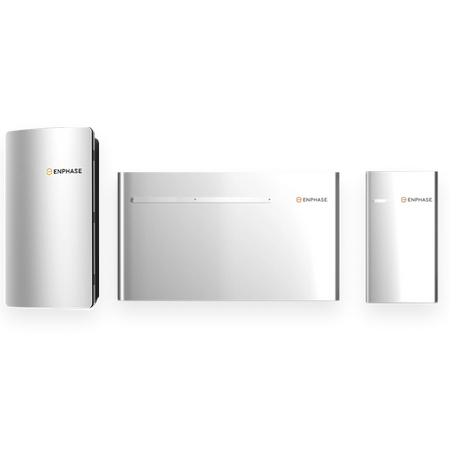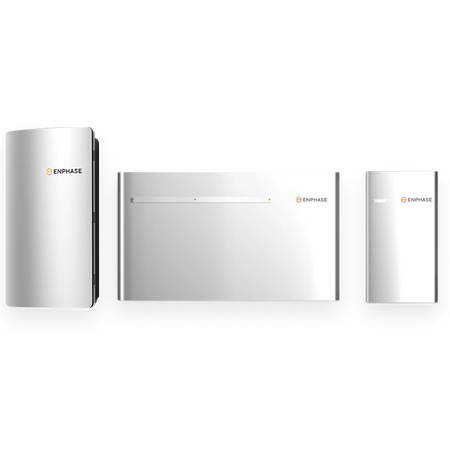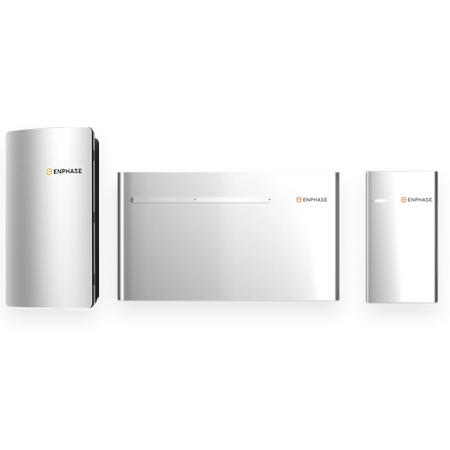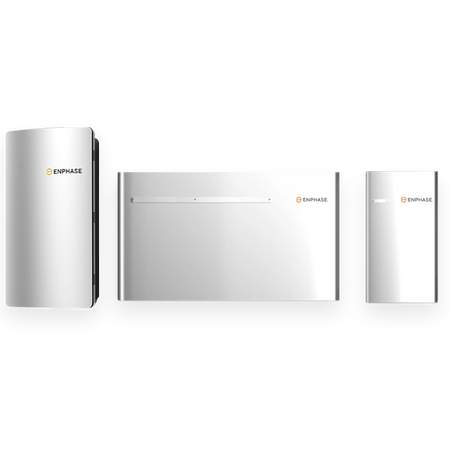Solar Panel Kits With Battery Storage
Solar battery backup guarantees a power source — even during a grid service failure or natural disaster. When the grid goes down, a solar battery backup system automatically detects and transitions your solar system from grid power to backup power. Protect your home from outages with our solar battery backup kits.
- Competitive Pricing
- End-to-End Support
- Bespoke Installation Manuals

Shop By:
-
4.0 kW Solar Kit with Enphase Microinverters and 10 kWh Encharge Lithium Battery4.0 kW Solar Kit with Enphase Microinverters and 10 kWh Encharge Lithium BatteryStarting at $22,877
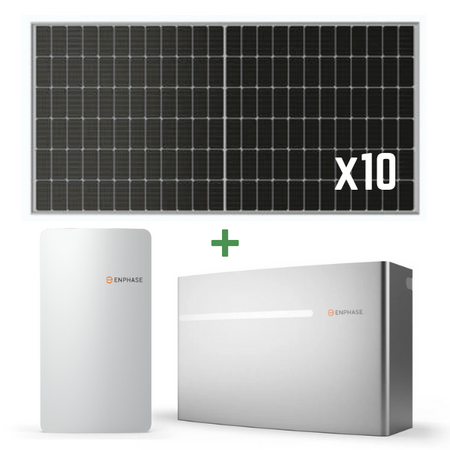
-
4.8 kW Solar Kit with 8kW Sol-Ark inverter and 16.2 kWh Fortress LifePO4 Battery Bank4.8 kW Solar Kit with 8kW Sol-Ark inverter and 16.2 kWh Fortress LifePO4 Battery BankStarting at $25,904
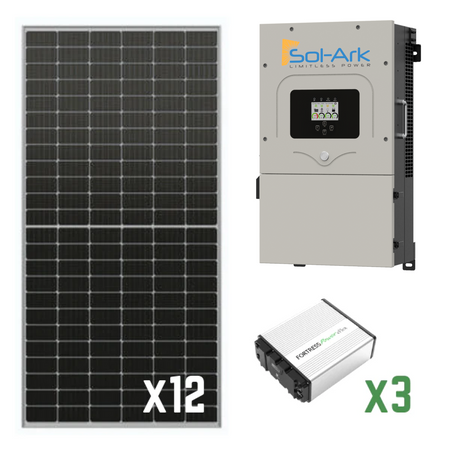
-
6.0 kW Solar Kit with Enphase Microinverters and 13 kWh Encharge Lithium Battery6.0 kW Solar Kit with Enphase Microinverters and 13 kWh Encharge Lithium BatteryStarting at $29,659
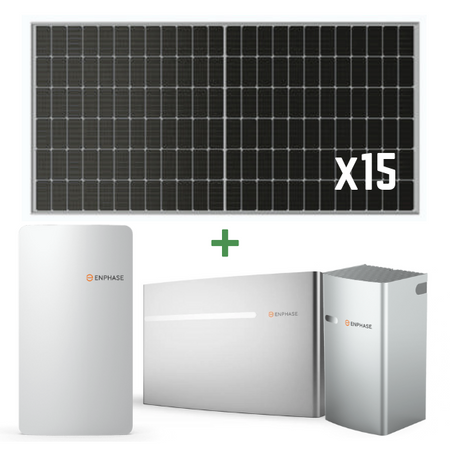
-
10.0 kW Solar Kit with Enphase Microinverters and 20 kWh Encharge Lithium Battery10.0 kW Solar Kit with Enphase Microinverters and 20 kWh Encharge Lithium BatteryStarting at $44,608
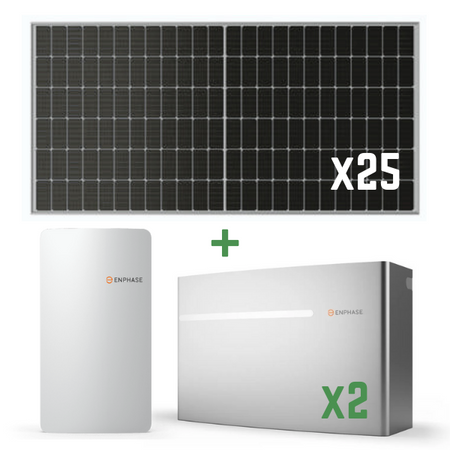
-
16.0 kW Solar Kit with Enphase Microinverters and 30 kWh Encharge Lithium Battery16.0 kW Solar Kit with Enphase Microinverters and 30 kWh Encharge Lithium BatteryStarting at $64,917
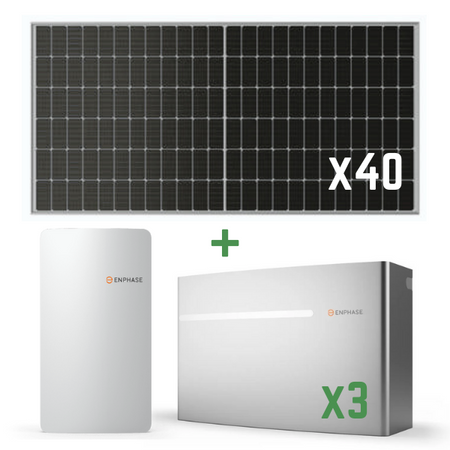
-
9.6 kW Solar Kit with 12kW Sol-Ark inverter and 21.6 kWh Fortress LifePO4 Battery Bank9.6 kW Solar Kit with 12kW Sol-Ark inverter and 21.6 kWh Fortress LifePO4 Battery BankStarting at $35,186
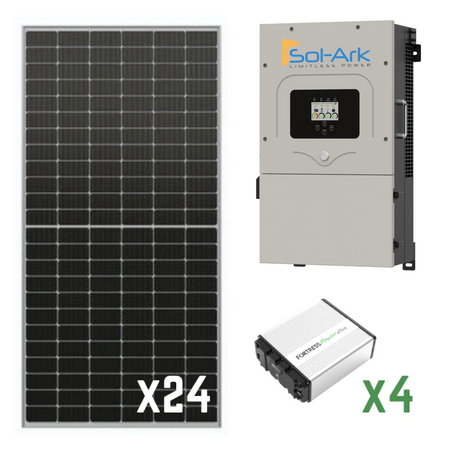
-
16.0 kW Solar Kit with (2) 12kW Sol-Ark inverter and 32.4 kWh Fortress LifePO4 Battery Bank16.0 kW Solar Kit with (2) 12kW Sol-Ark inverter and 32.4 kWh Fortress LifePO4 Battery BankStarting at $61,125
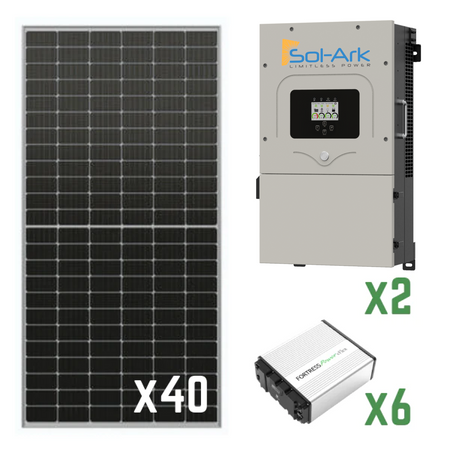
-
8.0 kW Solar Kit with 8kW Sol-Ark inverter and 16.2 kWh Fortress LifePO4 Battery Bank8.0 kW Solar Kit with 8kW Sol-Ark inverter and 16.2 kWh Fortress LifePO4 Battery BankStarting at $31,020
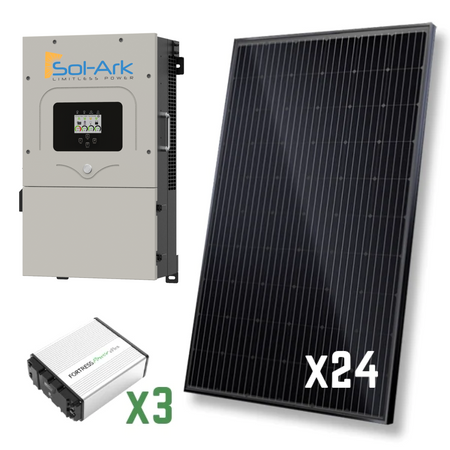
- Page 1 of 2
- Next page

Solar With Battery: Confidence In Every Kit
GoGreenSolar is a leading online seller of solar panels, inverters and DIY solar equipment. We are the only solar company to offer a 100% money-back guarantee. If your permit isn’t approved for some reason, we'll refund your money in full.
What’s in your Solar Kit with Battery
Each kit has everything you need for a successful solar project. No need to deal with the hassle of buying parts individually!
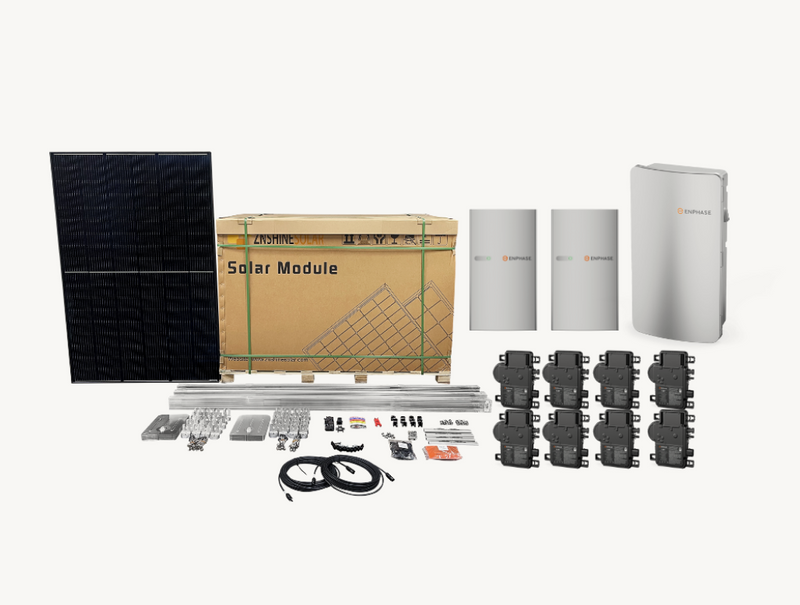
Solar Panels
Our premium solar panels are backed by top-notch technical assistance from our team of solar specialists.
Inverters
Your kit includes a microinverter or string inverter to convert solar panel DC power to AC power and provide net metering capability.
Batteries
Our state-of-the-art batteries enable you to store surplus energy generated during the day, utilizing it during nighttime or peak demand periods to maximize your energy savings.
Racking
IronRidge builds the strongest roof and ground mounting systems in solar. Every component has been tested to the limit and proven in extreme environments.
Monitoring System
Monitoring apps oversee your solar production, helping you catch issues early to ensure efficient system performance and cost savings.
Plan Set & Interconnection Service (optional but recommended)
Staying compliant with local codes and regulations can get complicated. That’s why we do most of the legwork for you. We’ll work closely with your city, HOA and utility to get your system up and running.
Solar With Battery Storage FAqs
Is it worth getting battery storage with solar?

Protect Against Outages
Solar battery kits give you everything you need to power your home and keep it running during a grid outage.
When utility power is available, your solar panels generate electricity that can roll back your energy bill. If the power goes out, the system draws energy from the battery bank to keep your most important electrical loads running.
If you live in a harsh climate or your local power grid is unreliable, grid-tie solar batteries can provide peace of mind and help you live life uninterrupted by outages.

Reduce your utility bill
The benefits of having a solar battery kit extends beyond power backup. Solar battery systems efficiently store excess energy generated by your solar panels, allowing you to tap into this resource during peak hours when utility rates are at their highest.
By strategically harnessing stored energy, you effectively reduce your utility bills, making solar battery kits a wise investment for every solar owner seeking substantial financial advantages.

Energy Independence
Purchasing a battery along with your solar kit offers a pathway to energy independence from your utility company, especially when they provide a meager buyback rate for surplus energy you send to the grid. With a battery storage system in place, excess solar energy can be stored instead of sold to the utility for low rates. This empowers you to rely less on the utility's low buyback rate and instead harness your self-generated energy, reducing your reliance on your utility company.
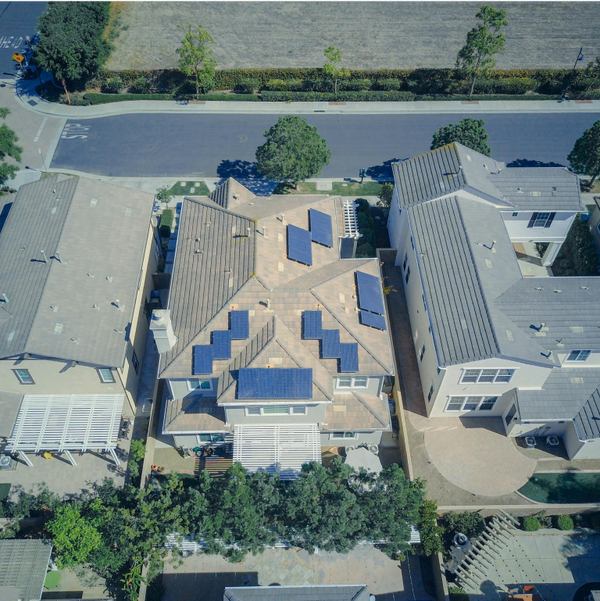
Californians Save Even More
Under NEM 3.0, homeowners in California who opt for battery installation stand to maximize their savings compared to those without. With batteries, you have the ability to store excess energy generated during the daytime, when the export rate is lower but solar production is high. This gives you two choices with your stored power:
- Use the stored energy from your battery bank during the evening, when electricity rates tend to be higher and solar production tails off to zero.
- Sell the power back to the utility at the higher rates.
By storing excess solar energy in batteries, you can reduce your reliance on the grid and save money on your electricity bills.
Learn more: The Benefits of Solar Battery Storage
Can solar batteries power my entire home?

Partial Backup
10-20 kWh Storage
A 10 kWh storage capacity offers typical homeowners partial home backup, enabling you to run essential appliances and daily-used electronics such as refrigerator, computer, and TV. While these partial backup systems efficiently manage most of life's conveniences, non-essential loads like hot tubs, EV chargers, or air conditioners are temporarily shed during power outages.
Whole-Home Backup
20-40+ kWh Storage
In addition to the above, a 20-40 kWh storage system would account for larger energy-intensive loads like your well pump, air conditioning, laundry, and dishwasher. Look for a battery bank in this size range if you need whole home backup for a single-family home.
Learn more: Is Whole-Home Backup Right for You?
How many solar batteries do I need to power my home?
Determining the number of solar batteries needed to power your home depends on several factors, including your energy consumption, the size of your solar system and your desired level of energy independence. Factors such as household size, peak energy usage times and regional weather patterns also play a role.
At Go Green Solar, we understand that each homeowner's needs are unique based on the above mentioned factors as well as budget. Contact us today for a complimentary quote, and our experts will work with you to assess your specific needs and design a customized solar kit with battery storage for your home.
Discover more: Complete Guide About Figuring Our the Number of Solar Batteries You Need
How long do solar batteries last?
On average, solar batteries typically last between 5 to 15 years. However, with proper care and maintenance, some batteries can last up to 20 years or more.
Do solar batteries work during power outages?
Yes! Solar batteries provide backup power during power outages, allowing you to keep essential appliances and lights running even when the grid is down.
What are the different types of batteries?
There are several types of batteries commonly used for solar energy storage, each with its own unique characteristics and advantages. Lithium, Flooded Lead-Acid and Sealed Lead Acid batteries are three primary technologies used for solar energy storage, each with distinct characteristics.
- Lithium Batteries stand out due to their high energy density, long lifespan, and low maintenance requirements. Although more expensive upfront, they are designed to last longer and offer more usable energy compared to other types of batteries.
- Flooded Lead-Acid Batteries are cost-effective for smaller solar systems that don't demand high power output. While these batteries are inexpensive and widely available they come with their set of challenges. They require regular maintenance and proper ventilation due to their construction, making them a less attractive option.
- Sealed Lead-Acid Batteries unlike their flooded counterparts, don't require ventilation and can be installed in various orientations, making them suitable for installations where access is a challenge. However, their higher cost, sensitivity to overcharging, and the inability to service or recondition them are factors to consider.
At GoGreenSolar, we only hold lithium batteries due to their superior efficiency, safety features, durability, and thermal stability.
Learn more: Different Types of Solar Batteries
How do I choose the right solar battery system for my needs?
There are a few things to consider when choosing a solar battery system. Typically, homeowners must consider where they live, their daily energy usage and the intended application of their battery system.
Discover more: How to Choose the Right Solar Battery Storage System for Your Home
What is the difference between AC and DC Coupled?
AC (alternating current) and DC (direct current) coupled solar and storage systems are two distinct configurations for integrating solar panels with energy storage solutions.
In an AC-coupled system, the solar panels and the energy storage are connected to the AC side of the inverter. This setup allows for greater flexibility in the choice of solar panels and battery storage, as they can be installed independently and easily replaced or upgraded. Additionally, AC-coupled systems are well-suited for retrofitting existing solar installations with energy storage capabilities.
On the other hand, DC-coupled systems involve connecting the solar panels directly to the DC side of the battery inverter. In this setup, the solar panels' DC output is directly used for charging the batteries, which can result in slightly higher efficiency due to fewer conversion losses. DC-coupled systems are often preferred in scenarios where maximum energy capture and efficiency are crucial.
The choice between AC and DC-coupled solar and storage systems depends on the specific needs and goals of the installation. AC-coupled systems offer greater flexibility and are ideal for retrofitting or when the solar and storage components come from different manufacturers. DC-coupled systems, on the other hand, may be favored when efficiency and direct utilization of solar energy are critical considerations.
Understanding the advantages and limitations of each configuration helps in making the most appropriate choice for a particular solar and storage project.
| AC Coupled | DC Coupled |
|---|---|
|
Integrates into existing systems AC-coupled solar and storage systems are better suited for micro inverter setups or for integrating energy storage into existing solar installations. The flexibility of AC coupling allows easy addition of energy storage to an already installed micro inverter system without major modifications. |
Cost-effective DC-coupled systems can be more cost-effective, particularly in new installations. Since the solar panels and batteries share the same inverter, fewer components are needed, resulting in reduced installation and equipment costs. |
|
Reliable AC-coupled solar and storage systems are known for their reliability, contributing to their popularity in various applications. One key advantage of AC coupling is the ability to operate solar panels and energy storage components independently. In the event of a battery malfunction or failure, the solar panels can continue generating electricity, providing a reliable power source to the grid. |
Battery charging In DC-coupled systems, solar panels directly charge the batteries at the same voltage level, allowing for optimized charging and management of battery states. This setup can enhance the battery's lifespan and performance by precisely controlling the charging process, reducing the risk of overcharging or undercharging. |
|
Less efficient AC-coupled solar and storage systems can be less efficient due to additional energy conversions, which introduce conversion losses. |
More efficient DC coupled solutions are more efficient, as there is less energy loss in converting DC to AC energy to power your system. |

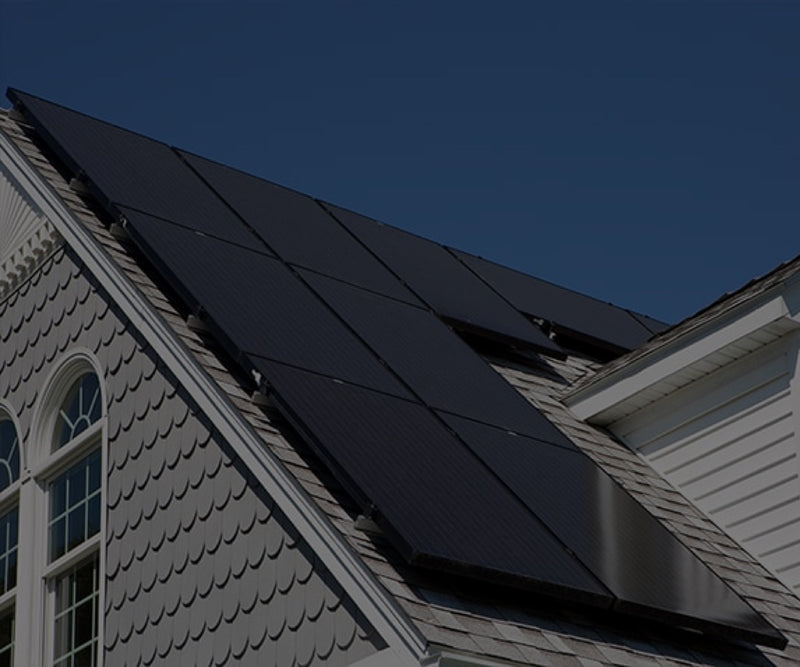
Solar Calculator
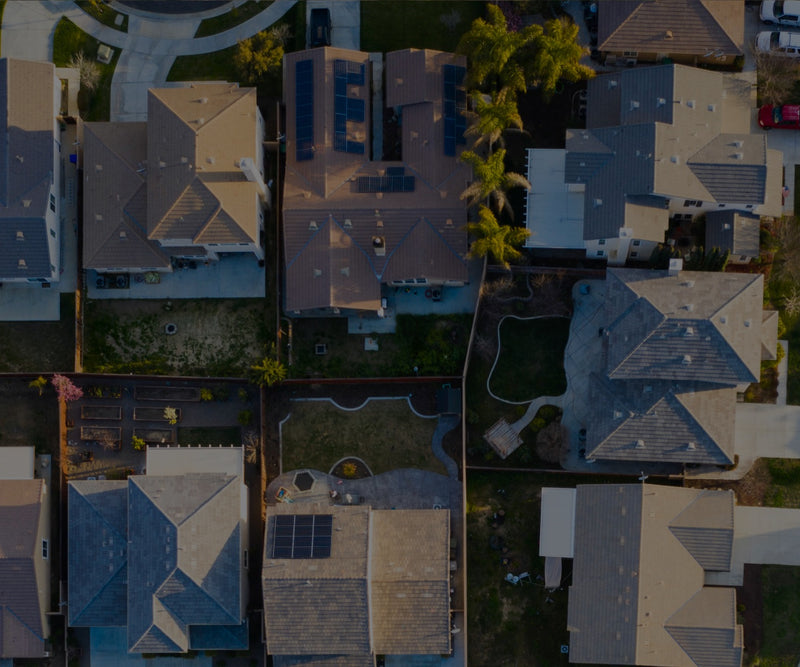
Which Solar Kit Do I Need?
GET STARTED WITH SOLAR
WE’LL HELP YOU FIGURE OUT YOUR SOLAR NEEDS!
Fill out the form for a complimentary solar quote that includes a custom satellite layout, system design and a breakdown of total project cost and estimated savings.








